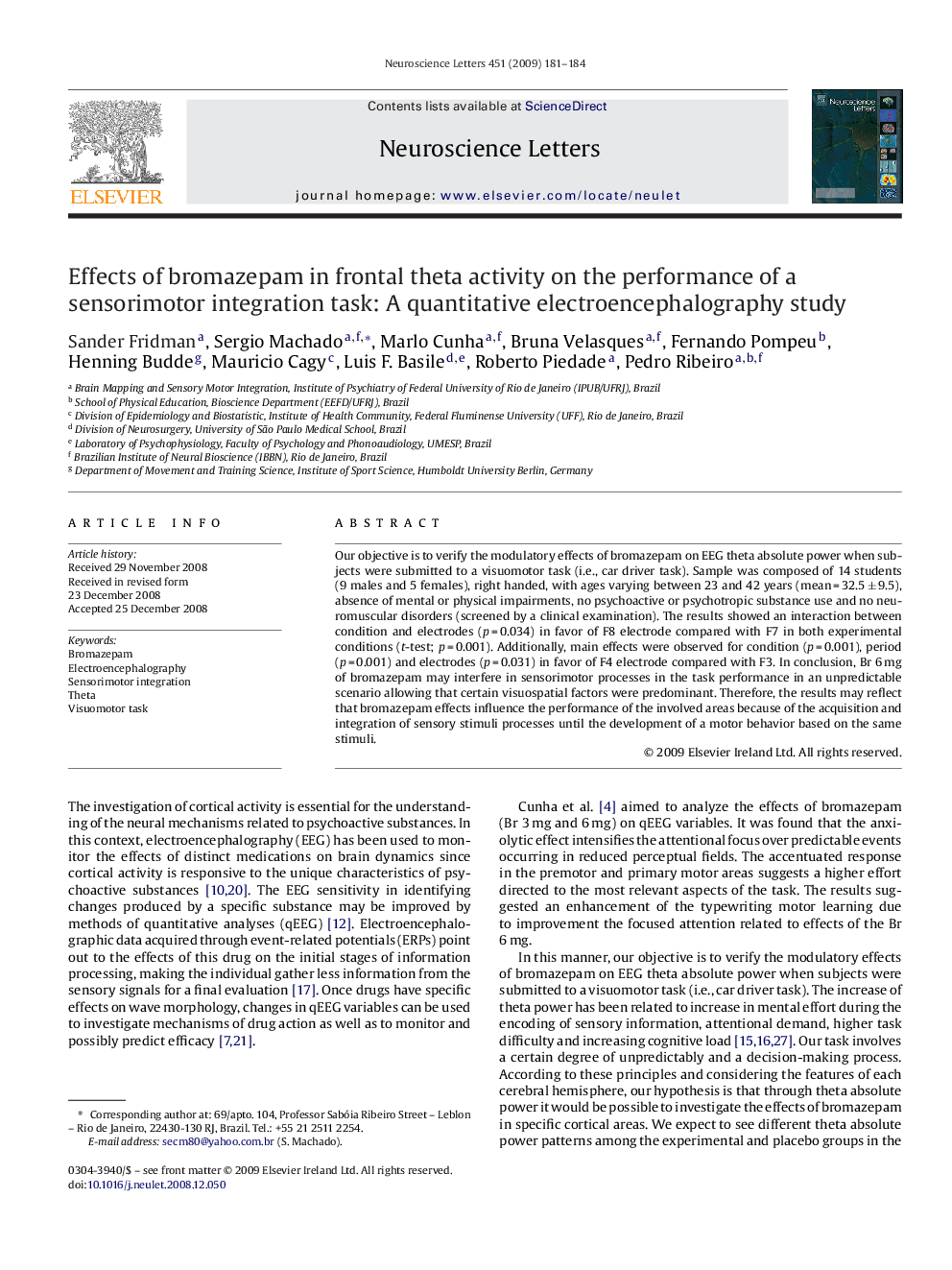| Article ID | Journal | Published Year | Pages | File Type |
|---|---|---|---|---|
| 4347374 | Neuroscience Letters | 2009 | 4 Pages |
Our objective is to verify the modulatory effects of bromazepam on EEG theta absolute power when subjects were submitted to a visuomotor task (i.e., car driver task). Sample was composed of 14 students (9 males and 5 females), right handed, with ages varying between 23 and 42 years (mean = 32.5 ± 9.5), absence of mental or physical impairments, no psychoactive or psychotropic substance use and no neuromuscular disorders (screened by a clinical examination). The results showed an interaction between condition and electrodes (p = 0.034) in favor of F8 electrode compared with F7 in both experimental conditions (t-test; p = 0.001). Additionally, main effects were observed for condition (p = 0.001), period (p = 0.001) and electrodes (p = 0.031) in favor of F4 electrode compared with F3. In conclusion, Br 6 mg of bromazepam may interfere in sensorimotor processes in the task performance in an unpredictable scenario allowing that certain visuospatial factors were predominant. Therefore, the results may reflect that bromazepam effects influence the performance of the involved areas because of the acquisition and integration of sensory stimuli processes until the development of a motor behavior based on the same stimuli.
